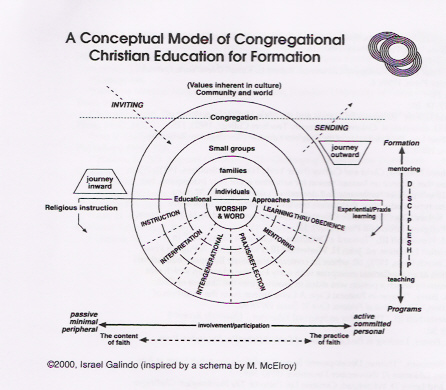
Alex Tang
Articles
- General
- Theology
- Paul
- Karl Barth
- Spiritual Formation
- Christian Education
- Spiritual Direction
- Spirituality
- Worship
- Church
- Parenting
- Medical
- Bioethics
- Books Reviews
- Videos
- Audios
- PhD dissertation
Spiritual writing
- e-Reflections
- Devotions
- The Abba Ah Beng Chronicles
- Bible Lands
- Conversations with my granddaughter
- Conversations with my grandson
- Poems
- Prayers
Nurturing/ Teaching Courses
- Sermons
- Beginning Christian Life Studies
- The Apostles' Creed
- Child Health and Nutrition
- Biomedical Ethics
- Spiritual Direction
- Spiritual Formation
- Spiritual formation communities
- Retreats
Engaging Culture
- Bioethics
- Glocalisation
- Books and Reading
- A Writing Life
- Star Trek
- Science Fiction
- Comics
- Movies
- Gaming
- Photography
- The End is Near
My Notebook
My blogs
- Spiritual Formation on the Run
- Random Musings from a Doctor's Chair
- Random Sermons from a Doctor's Chair
- Random Writings from a Doctor's Chair
- Random Spirituality from a Doctor's Chair
Books Recommendation
---------------------
Medical Students /Paediatric notes
Galindo, Israel. (2001).Methods of Christian Education toward Christian Spiritual Formation. Review and Expositor. 98 (Summer): 411-429
Notes
“…formation should be the overarching integrative factor in Christian education-especially in the congregational context. A formation approach to Christian education is ideally suited to the development of the individual in the communal context that reflects the nature of the church” p.411
“A sound application of a formation approach will take into account modern psychologies, educational research, appropriate theological frameworks, and congruence methodologies. Both developmental psychologies and formation theory contain implications for fundamental assumptions concerning methodology in Christian education. Developmental psychologies can inform a formation approach to Christian education. Erik H. Erikson and Carl G. Jung, in their theories, maintain that all data of human experience can be given a religious interpretation…This understanding broadens the scope of Christian education beyond information, core knowledge, or propositional doctrinaire curriculum.” p.411
“Both developmental psychology and formation theory demand that a Christian education be life-centered and need-oriented. Christian education must be presented as a personal search for meaning and as part of the learner’s total religious experience. Christian education must help clarify for the believers their religious and spiritual needs and dimensions.” P.412
Epistemological Foundations
- Most theologian education produces graduate that is comfortable to educate with “message-content” rather than the process and learning of the students. Content is most important. In formation, the process and learner is content.
- Most educators have a worldview that denied the supernatural. Formation must take into account the supernatural.
- Most educator tend to compartmentalise the human into secular-sacred. Formation is holistic. “A Christian education formation for spiritual development must provide a unified epistemology that fosters in the believer a concept of a unified spiritual life structure.” P.414
- Formation should be centered more on religious experience rather than prepositional truths.
- Formation is effective if religious principles were taught. “The methods as well as the content of a Christian education for spiritual formation need to grow out of the basic Christian assumptions of the nature of church as community and of the nature of person as relational.” P.415
Implications for a Christian Education for Spiritual Formation
- Affective-Cognitive dichotomy
- Studies from psychology and education research has shown that a cognitive emphasis to spirituality is inadequate for spiritual growth.
- For spiritual growth, a highly sensitive affective consciousness must be trained.
- “In a Christian education for spiritual formation, attention must be given to fostering affective spiritual autonomy, awareness and development”. P.416
- A teacher who uses logic will not be as effective as one who uses images and affect.
- Disciplines that can develop these are (1) discernment; (2) contemplation and (3) prayer.
- Spiritual generativity
- Spiritual growth always involve a movement inwards and a movement outwards.
- Formation must always allow avenue for outward service into involvement in lives of others.
- Community and mentoring
- The main task of a community is to provide role models for the spiritual life.
- Provide a “climate of freedom”-where learners will be free to fail.
- Teaching as relationship
- “A Christian education for spiritual formation must refocus its foundational understanding of teaching from being a technique, method, activity, or art, to teaching as a relationship” p.419
- In teaching as relationship”
- Content and cognitive are secondary
- Since it is relationship and the Holy Spirit is involved, then any member of the church can be a teacher.
- Involves submission and mutuality. Accountability is important.
- Relationship as I-Thou.
- Learner is the content of the learning experience.
- Teachers must be open to change.
Implications for Methodological Approaches
“Methodology must help provide the environment in which channels of communication and dialogue between the teacher, the learner, and God are opened.” P.421
- Symbols, stories and myths
- Symbols
- Personal stories and myths
- Small groups
A Conceptual Model of Congregational Christian Education for Formation
